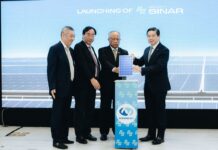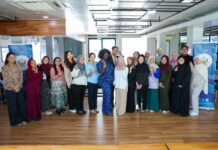
Ten Brunei food and beverage (F&B) businesses are undergoing a product development project to potentially export to Japan.
The Embassy of Brunei in Japan, supported by the ASEAN-Japan Centre (AJC), are organising the project and have engaged Japan’s Association of International Business Advisors (AIBA) to provide consultation to improve product quality and learn about Japan’s import requirements.
The 10 participating businesses selected by Darussalam Enterprise (DARe) are Superwater Marketing (RainFresh), Taurean Bakeshop and Cafe, Volco Ventures Company, Bruhouse (BruPhar), Sabli Food Industries, Syanisah Enterprise, lanna Enterpise, Rizqussalam, Mori Farm, and Ghanim International Corporation (bruneihalalfoods).
The project commenced yesterday with a webinar hosted by DARe at the Design and Technology building and lead by AIBA’s Makoto Nakamura – who has an extensive portfolio in importing foreign products into Japan.
Nakamura gave preliminary feedback to the participating companies on their product samples which were sent to Japan. A one-to-one consultation between AIBA and the Brunei companies will now follow, with AIBA expected to provide a report to the businesses after which, they will assess and outline the qualitative and technical specifications of their products and improvements that can be made.
After the businesses refine their products based on the report, the project is also considering doing market testing in Brunei before hosting an introduction to potential distributors and buyers in Japan.
Nakamura said he has previously consulted eight Brunei F&B businesses – two of which now successfully export to Japan: Golden Corporation’s frozen blue shrimp and Suci distilled water.
“The key points of their success is their ability to mass produce which enables competitive pricing, high level of quality control and hygiene management (produced under internationally accredited standards), and their uniqueness in their concept, so there is not (much) conflict with other products in the market,” he shared in the webinar.
Nakamura added that ASEAN F&B products that are well received in Japan typically market themselves as being unique culturally, representing a “distinct, original, and ethnic taste” with packaging and labelling in Japanese.
“Japanese customers also prioritise health, price, and convenience of the product (in that order of importance), with the focus on product safety becoming an increasing consideration in the future,” he said.
The Brunei-Japan Economic Partnership Agreement, which came into effect in 2008, also provides Brunei F&B businesses with lowered import duties to Japan with items such as shrimp, sauces, instant curry, and mineral water carrying no tax.
Nakamura also gave an update on Japan’s latest import requirements and regulations for F&B products.
Also attending yesterday’s webinar was DARe CEO Javed Ahmad along with DARe’s market access and representatives from the Brunei Economic Development Board.











